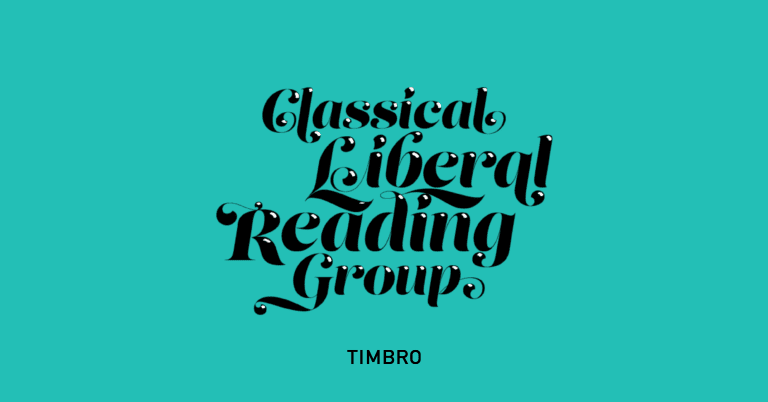Classical Liberal Reading Group

The Timbro classical liberal reading group is part of Timbro’s educational program and has been active since 2015. This December/January the reading group will focus on the discussions surrounding the establishment of the United States of America as reflected in the Federalist Papers.

The Federalist Papers
If men were angels, no government would be necessary. If angels were to govern men, neither external nor internal controls on government would be necessary.
In framing a government which is to be administered by men over men, the great difficulty lies in this: you must first enable the government to control the governed; and in the next place oblige it to control itself.
James Madison, Federalist Papers, #51
Discussion leaders: Daniel Klein and Björn Hasselgren
Meetings: Hybrid Timbro, Kungsgatan 60/Google Meet
The Federalist Papers were written and published to urge readers, particularly in New York, where the essays first appeared, to ratify the proposed United States Constitution, which was drafted in Philadelphia in the summer of 1787.

In lobbying for adoption of the Constitution, to replace the existing Articles of Confederation, the essays explain particular provisions of the Constitution in detail. For this reason, and because Hamilton and Madison were members of the Constitutional Convention, the Federalist Papers are often used today to help interpret the intentions of those drafting the Constitution.
The assigned readings will be just a few of the most important and most famous papers. The edition is the one published by Liberty Fund (link).
Sessions
In each session, Dan Klein will speak about the broader context of the texts, both with respect to the whole of the Federalist Papers and, even more broadly, about American affairs from 1776 to 1789, when George Washington becomes the first President of the United States of America.
Session 1: Monday December 18 17.30 – 19.00 (CET) Timbro, Kungsgatan 60 or Google Meet
Page citations are to this edition from Liberty Fund
Total pages: 18
- George Washington’s Letter of Transmittal to the President of the Continental Congress, 17 Sept. 1787, pp. 522–523.
- Federalist Paper No. 37, by Madison, pp. 179–185.
- Federalist Paper No. 38, by Madison, pp. 186–193.
- Only the final paragraph of Federalist Paper No. 85, by Hamilton, pp. 457–458.
Suggested additional reading: The Editors’ Introduction, by George Carey and James McClellan, pp. xvii–lv.
NOTE: There is one sentence that is carelessly written and misleading, on p. xlvi, where they write that The Federalist Papers “had virtually no effect on the ratification and final adoption of the Constitution.” All that they mean there, I believe, is that even if The Federalist Papers had never been written, at least nine states would have ratified the Constitution, and, as nine was the threshold for adoption for ratifying states, the Constitution would have been adopted by those states. The editors, I believe, do not mean to say that even if The Federalist Papers had never been written, all thirteen states would have ratified—indeed, I believe that that would not have been the case.
Session 2 Thursday January 11 17.30 – 19.00 (CET) Google Meet
Total pages: 19
- Federalist Paper No. 10, by Madison, pp. 42–49.
- Federalist Paper No. 51, by Madison, pp. 267–272.
- A portion of Federalist Paper No. 84, by Hamilton, pp. 442–447, concerning a bill of rights.
Apply
If you are interested in participating write an email to Björn Hasselgren bjorn.hasselgren@timbro.se. Shortly describe your background and tell why you would like to take part of the exercise. Apply by December 11, 2023. Also contact Björn if you have any other questions about the reading group, +46-70-7623316.
Professor Daniel Klein, who will lead the Reading Group, is also available by email dklein@gmu.edu.